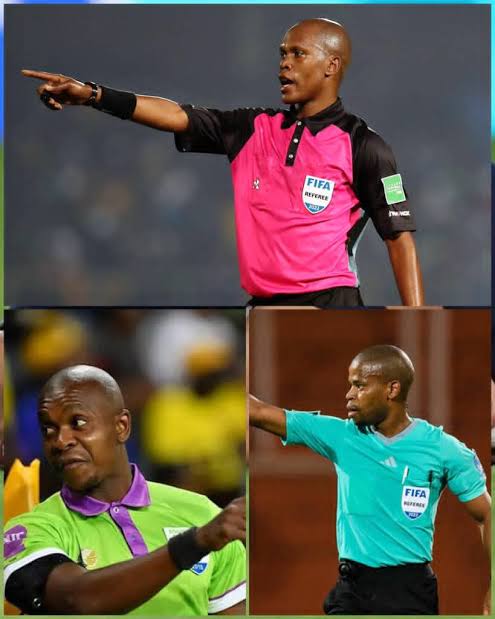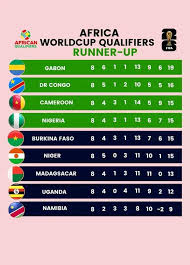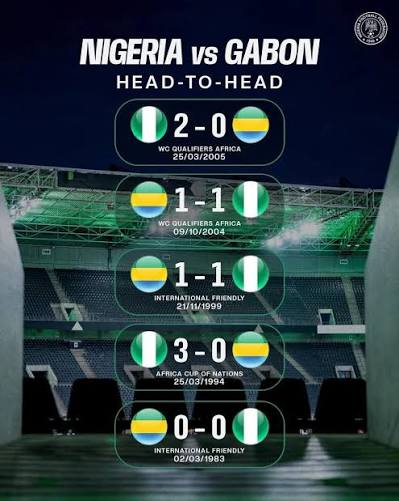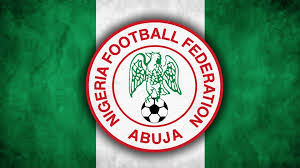NFF Rejects FIFA's Appointment of South African Officials for the Playoff match against Gabon

The Nigerian Football Federation yesterday, November 7, has openly rejected FIFA's decision to pick South Africans professionals as officials for their playoff match against Gabon.
FIFA's Head of Qualifications and International Matches, Gordon Savic, in a telegram message announced the choosing of South Africa’s Tom Agbongila as the centre referee for the Super Eagles’ 2026 World Cup playoff against the Panthers of Gabon on November 13, 2025.
In the list of officials for the game, FIFA announced that the 33-year-old Agbongila will be assisted by Angola’s Santos Doz (AR 1) and another South African, Thusi Granville (AR 2).
To man the VAR room are Ahmad Imthaze of Mauritius, Makalima Zennith of South Africa and Packuita Gynquela of Mauritius, while the referee assessor is Adjovi Hugues-Alain of Benin Republic, with Prince Kai of Sierra Leone as Match Commissioner. The general coordinator for the game is KIzuguito Baraka of Tanzania, with Algeria’s Mahmdiona Imad-Eddine as security officer.
This selection by FIFA has been widely rejected by the NFF. A top official of the NFF explained to the Guardian that the choice of picking South African professionals to officiate a match that would determine Nigeria's fate is unacceptable given their recent history.
The NFF official, who pleaded anonymity, said: “It is as if there is somebody in FIFA plotting to see that Nigeria does not qualify for the World Cup.
He further went on to complain that FIFA had allowed them to play all but their matches against Nigeria and Benin Republic in South Africa and that gave them a good lead against other competitive nations.
The NFF in an open protest letter sent to FIFA, late Wednesday addressed the concerns of the Super Eagles. The NFF argued that assigning officials from South Africa and Benin Republic—two nations that were in Nigeria’s qualifying group—creates a “serious conflict of interest” and undermines the principle of neutrality required in international officiating.
In respect to Benin Republic, the NFF expresses some concern given that they were leading the table until Nigeria put four goals past them in their final match at Uyo—pushing them to spot 3 and by implication kicking them out of the World Cup.
In respect to South Africa, the NFF builds it's case on a somewhat careless statement made by South Africa’s Sports Minister, Gayton McKenzie, who in a recent Johannesburg radio interview, publicly stated that he would not want Nigeria to qualify for the World Cup.
He accused Nigeria of trying to sabotage their world cup qualification — a reference to the earlier Group C protest over South Africa’s use of an ineligible player.
FIFA had responded to this by docking the Bafana Bafana team three points and three goals, almost enough to kill their world cup dream but they prevailed following their three to nil victory over Rwanda.
Regardless, Nigerians have described the minister’s remarks as “unprofessional and inflammatory.”
The NFF’s position is that appointing referees from a country whose senior government official has expressed such hostility toward Nigeria is “at best insensitive and at worst prejudicial.”
NIGERIA'S JOURNEY TO THE WORLD CUP
The Super Eagles journey to North America has been a rollercoaster. When the groupings were announced, the Super Eagles were immediately favoured to top their groups. However things didn't go smoothly for the Green-White-Green side.
Before their last fixture, the Super Eagles who were boasted to have topped their group were sitting at a surprising 3rd place behind Benin and South Africa who had lost 3 points. The Super Eagles understanding the assignment knew there were only two ways to go to North America — beat Benin by at least 2 goals and hope Rwanda pulls an upset win against South Africa or beat Benin by as many goals as possible to make it to the qualifiers should South Africa defeat Rwanda. As fate would have it, the latter was the case as Nigeria pulled a dramatic 4-0 win against the group leaders, and South Africa not lacking in goals, put 3 past Rwanda.
This sent Nigeria into the playoff, a 4 man qualification playoff where they joined Gabon, Congo DR and Cameroon.

Now, the fate of Nigeria hangs in the balance. The Super Eagles performance in this playoffs will determine if Nigeria will be in the 2026 world cup or cheer others from their large TV Screen.
FIFA's EXPECTED RESPONSE
FIFA, as the global governing body of football has been known for its strong stance on fairness and neutrality especially in match officiating — especially for fixtures as important and delicate as this. Historically, the body has taken swift action in cases where perceived bias or conflicts of interest threaten the integrity of competition.
In this case, the NFF protest places FIFA in a delicate spot. One one hand, the appointments were probably made based on merit and availability also considering the fact that none of the official's nations were also in the playoffs.
But on the side of Nigeria, the optics surrounding the choice of South African officials as well as those from Benin has raised concerns considering the fact that both nations had past involvement in Nigeria's qualification.
Analysts believe that FIFA may choose to reassign one or more officials to neutral countries to preserve transparency and public trust, even if no intentional bias is proven.
“Even if FIFA concludes there’s no evidence of deliberate conflict, the optics alone could justify a reshuffle,” said one international football analyst Kayode Alabi contacted by PREMIUM TIMES.
“FIFA often prefers to err on the side of neutrality in cases involving politically sensitive matchups.”
However, if FIFA dismisses Nigeria’s protest, the current officiating team led by Abongile Tom will proceed as planned, a decision likely to intensify scrutiny over every refereeing call during the match.
As anticipation builds ahead of the Nigeria-Gabon clash in Rabat, Morocco, the super Eagles find themselves once again at the centre of continental attention. To them, the playoffs isn't just a match — it's an opportunity to regain their pride, seek redemption for failing to qualify as they should have and a chance to place themselves again among football's greatest elites.

Ultimately, the hope of 200 million Nigerians isn't totally dependent on the Super Eagles performance but impartial these appointed officials can be.
You may also like...
Super Eagles Fury! Coach Eric Chelle Slammed Over Shocking $130K Salary Demand!
)
Super Eagles head coach Eric Chelle's demands for a $130,000 monthly salary and extensive benefits have ignited a major ...
Premier League Immortal! James Milner Shatters Appearance Record, Klopp Hails Legend!

Football icon James Milner has surpassed Gareth Barry's Premier League appearance record, making his 654th outing at age...
Starfleet Shockwave: Fans Missed Key Detail in 'Deep Space Nine' Icon's 'Starfleet Academy' Return!

Starfleet Academy's latest episode features the long-awaited return of Jake Sisko, honoring his legendary father, Captai...
Rhaenyra's Destiny: 'House of the Dragon' Hints at Shocking Game of Thrones Finale Twist!

The 'House of the Dragon' Season 3 teaser hints at a dark path for Rhaenyra, suggesting she may descend into madness. He...
Amidah Lateef Unveils Shocking Truth About Nigerian University Hostel Crisis!

Many university students are forced to live off-campus due to limited hostel spaces, facing daily commutes, financial bu...
African Development Soars: Eswatini Hails Ethiopia's Ambitious Mega Projects

The Kingdom of Eswatini has lauded Ethiopia's significant strides in large-scale development projects, particularly high...
West African Tensions Mount: Ghana Drags Togo to Arbitration Over Maritime Borders

Ghana has initiated international arbitration under UNCLOS to settle its long-standing maritime boundary dispute with To...
Indian AI Arena Ignites: Sarvam Unleashes Indus AI Chat App in Fierce Market Battle

Sarvam, an Indian AI startup, has launched its Indus chat app, powered by its 105-billion-parameter large language model...

)

